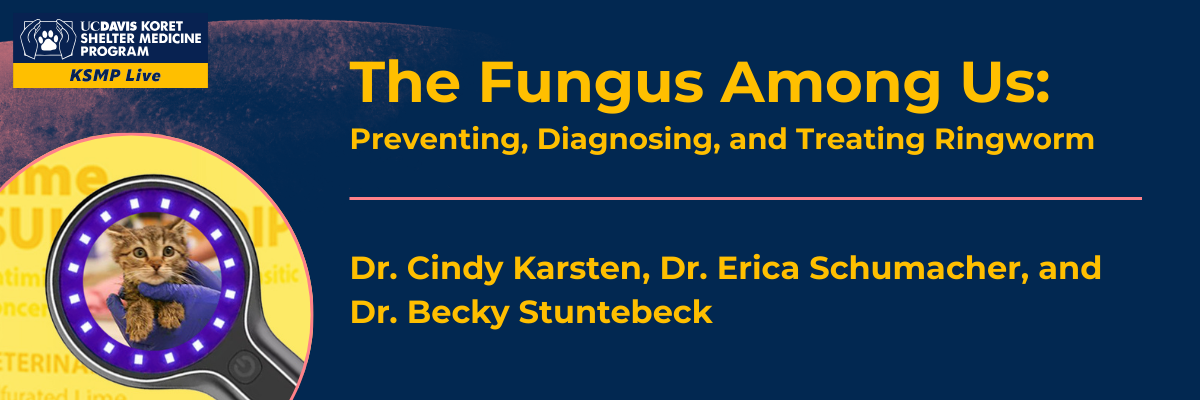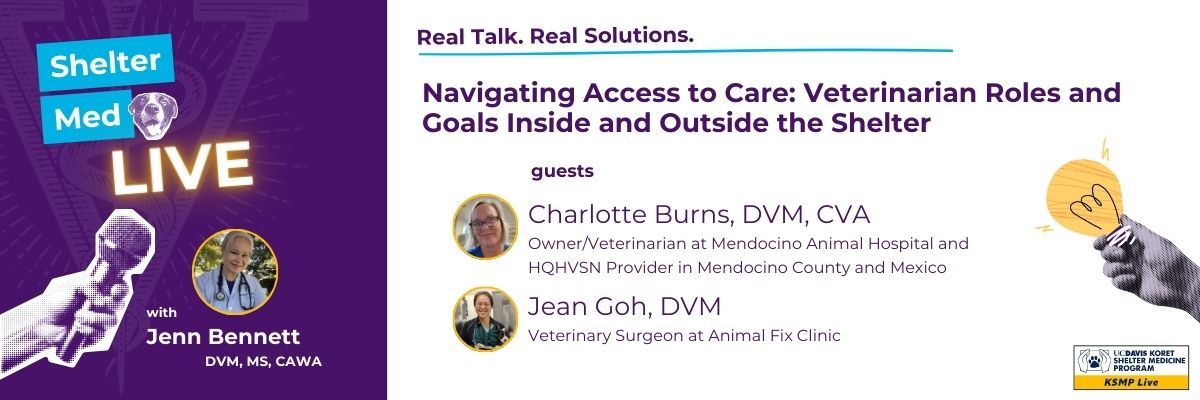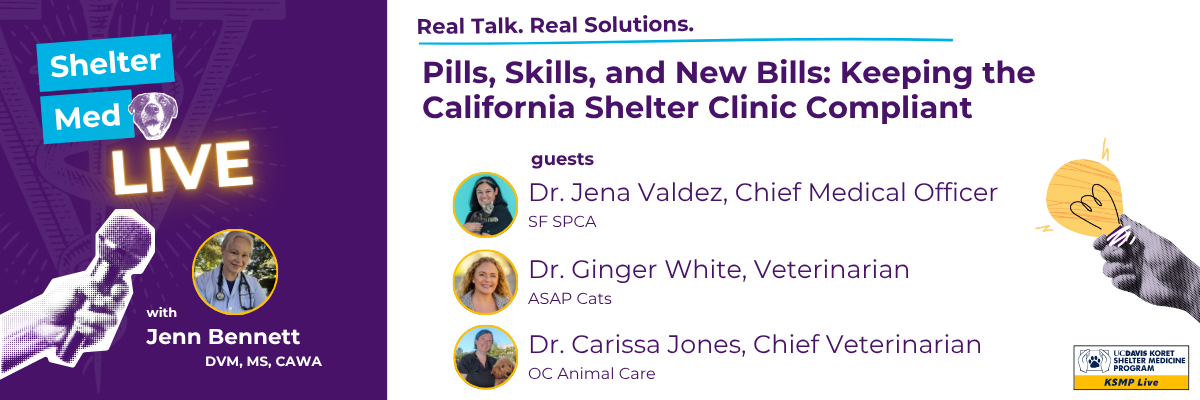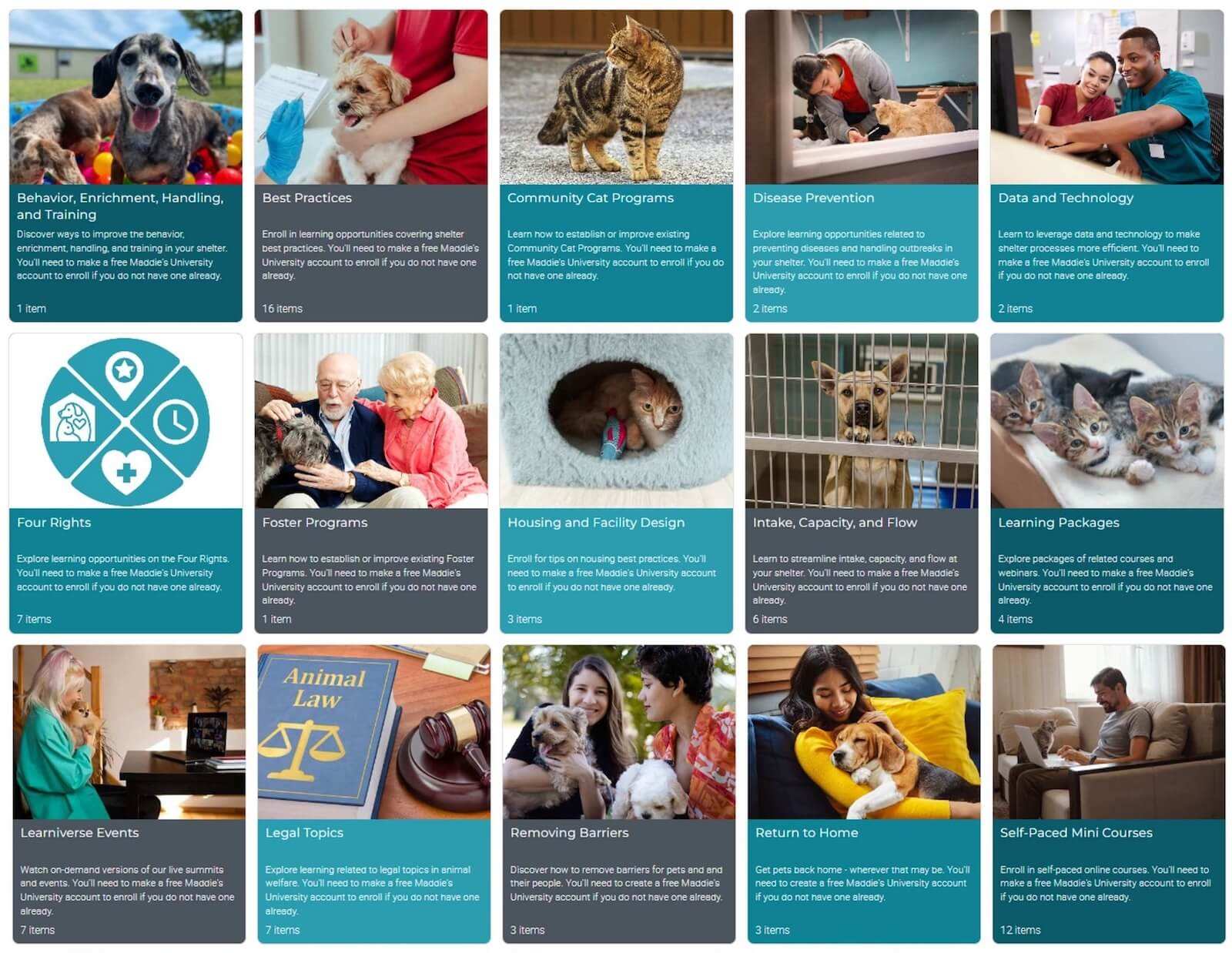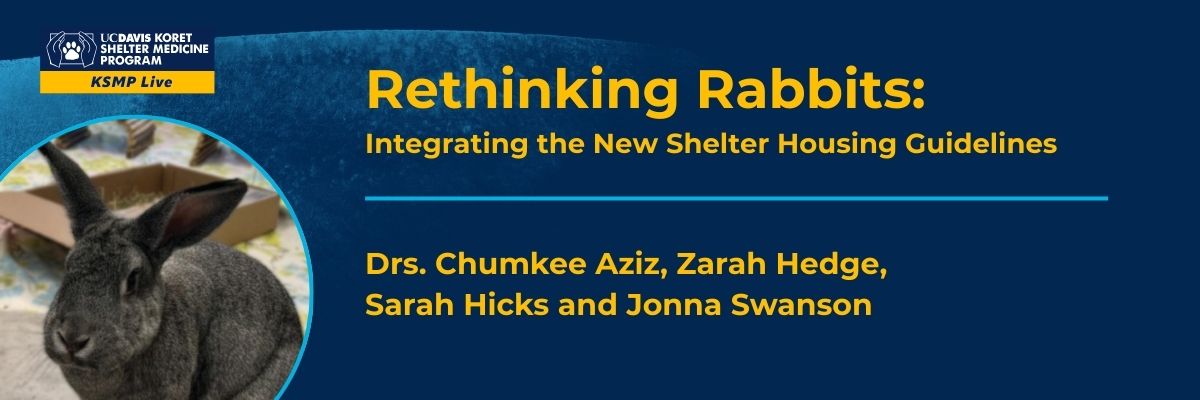
Rabbits are the new kids on the block: Most animal shelters weren’t designed with this sensitive, recently-domesticated species in mind. A shelter stay can spike stress both for bunnies and the teams challenged with meeting their needs.
Read more...
Rethinking Rabbits: Integrating the New Shelter Housing Guidelines
Date & Time: Feb. 25, 2026, 12–1:30 p.m. PT
Speakers: Mehnaz Chumkee Aziz, DVM, DABVP, Zarah Hedge, DVM, MPH, DABVP, Sarah Hicks, DVM, Jonna Swanson, DVM
Rabbits are the new kids on the block: Most animal shelters weren’t designed with this sensitive, recently-domesticated species in mind. A shelter stay can spike stress both for bunnies and the teams challenged with meeting their needs.
The first-ever Association of Shelter Veterinarians (ASV) Guidelines for Humane Rabbit Housing in Animal Shelters is here to help. Join Drs. Kate Hurley, Chumkee Aziz, Zarah Hedge, Sarah Hicks and Jonna Swanson for a conversation on applying these new standards—developed by nearly developed by nearly two dozen rabbit care, facility design and shelter medicine experts—to your everyday shelter scenarios. These experts will break down:
- The why behind the recommendations and how they bridged data gaps
- The highest-impact recommendations to focus on first
- Solutions for common shelter challenges
- Doable first steps for shelters with limited budgets and small teams
Approved for 1.5 hours of continuing education credit by RACE, CAWA, and NACA. Can’t make it live? Register to receive the recording and resources after the event.




.png?lmsauth=114f454ef1218999426d10c39523b8610bf1938b)

